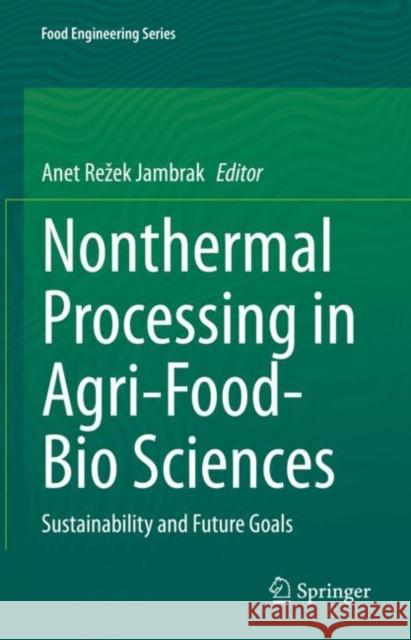Nonthermal Processing in Agri-Food-Bio Sciences: Sustainability and Future Goals » książka
Nonthermal Processing in Agri-Food-Bio Sciences: Sustainability and Future Goals
ISBN-13: 9783030924140 / Angielski / Twarda / 2022 / 791 str.
Nonthermal Processing in Agri-Food-Bio Sciences: Sustainability and Future Goals
ISBN-13: 9783030924140 / Angielski / Twarda / 2022 / 791 str.
(netto: 575,06 VAT: 5%)
Najniższa cena z 30 dni: 578,30
ok. 22 dni roboczych.
Darmowa dostawa!
This book addresses important questions on the legislation, regulations, sustainability, technology transfer, safety of biomaterials and mechanism of action of nonthermal processing on the molecular level of biomaterials and its impact on health. The chapters take an interdisciplinary approach that is of interest to specialists from engineering, physics, chemistry, agriculture, life sciences and beyond, with a focus on further development of existing and new applications of nonthermal processing and their combination with other methods in the processing of biomaterials, agriculture, biotechnology and the re-use of waste and by-products. Nonthermal Processing in Agri-Food-Bio Sciences: Sustainability and Future Goals aims to boost further developments and applications of nonthermal technologies to develop healthier products, to ensure consumer approval for these innovative technologies and to improve the sustainability of biomaterials production. The industrial application of nonthermal processing has led to an increase in innovative value products and the overall improvement of production capacity. Nonthermal processes use less energy and chemicals, reduce processing times, have less environmental impact, produce less waste, and have the potential for industrial scale-up and a return-on-investment in under 5 years. According to The United Nations and the 2030 Agenda for Sustainable Development, 17 goals should be incorporated within development projects, and researchers are starting to use novel techniques to meet them. In covering the fundamental engineering theories underlying nonthermal processing, this book will aid in this mission. The book overviews the advantages and disadvantages of novel technologies, over to sustainability goals to correct steps for the scale-up and return on investment. The book includes the chemistry and physics of nonthermal processing technologies, dedicated to specialists and researchers from a wide range of subject areas. Interdisciplinary scientists and engineers, sustainability experts can use this text to aid in their work in green technologies.











